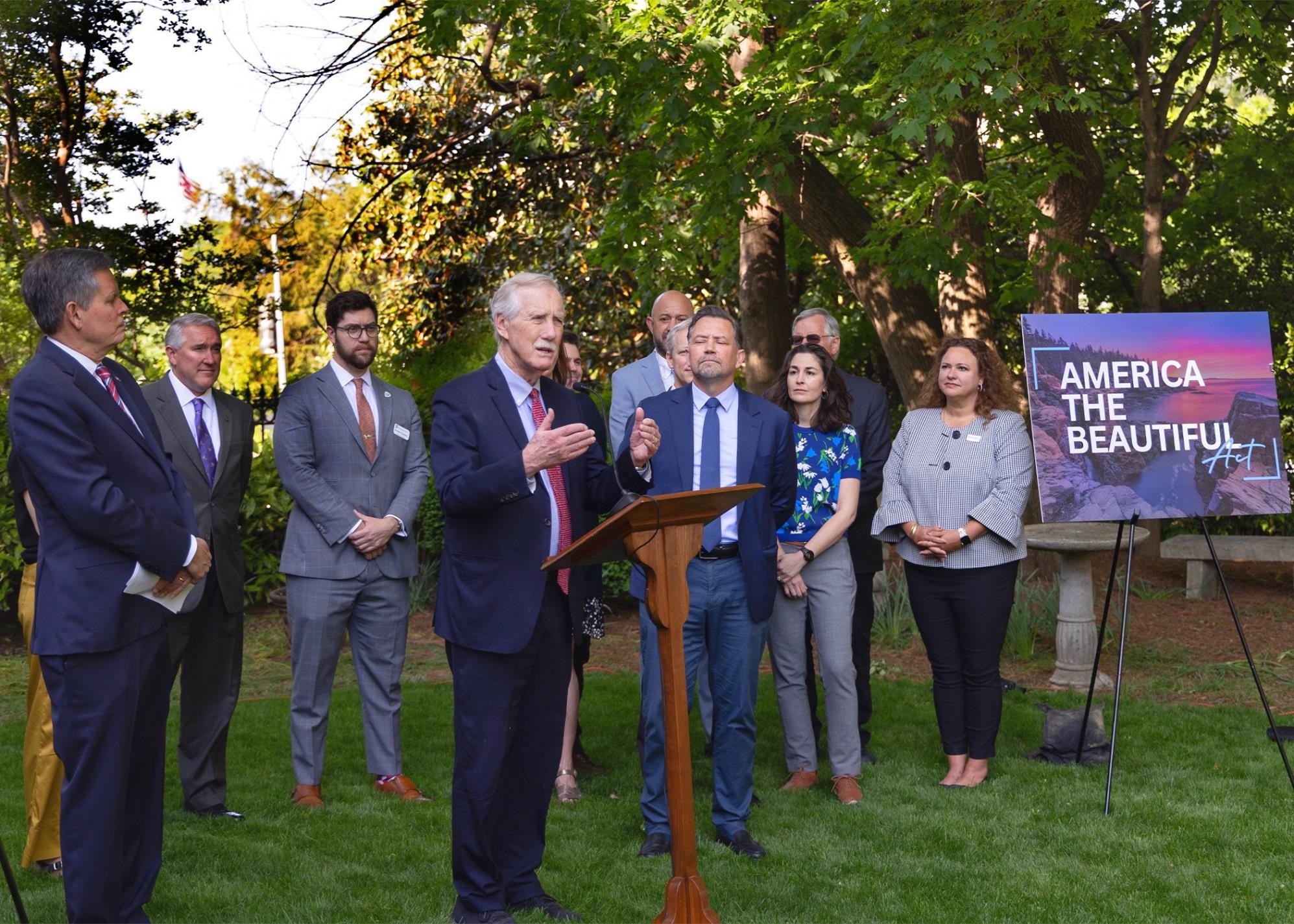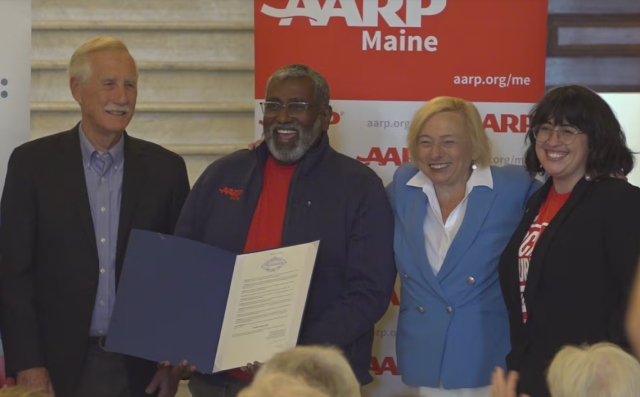Getting More Time for Maine Voices to Discuss Gulf of Maine Buoy Plan

Recreational and commercial mariners rely on navigational buoys in the Gulf of Maine to get around safely in the water. Yet, several months ago, the United States Coast Guard (USCG) launched something they called the Coastal Buoy Modernization Initiative, a component of its broader Short-Range Aids-to-Navigation Modernization effort. This initiative proposed the discontinuation of 351 coastal buoys across New England (Maine accounts for the largest share at 145 buoys). At the same time, an additional 2,349 buoys and beacons were listed for potential removal as part of the Harbor Buoy Modernization Initiative and the Shallow Water Level of Service Study (SWLOSS), scheduled for phased implementation from 2026 through 2029. In total, some 2700 buoys were placed up for consideration for removal along the New England coast.
This deserves a lot more thought and time to get right, so I led all of New England’s Senators in writing a letter to Coast Guard Commandant Kevin Lunday, to delay the removal of navigational buoys off the coast of New England. We believe that our mariners, and other stakeholders, deserve ample time to share their input. We asked the USCG to undertake more extensive outreach and assess all the available data before making any final decisions on the removal of the navigational buoys.
Thankfully, we received confirmation this month that the USCG will accept our recommendation. In a letter addressed to the Senators, USCG Director of Marine Transportation Systems, Michael D. Emerson, agreed with the Senators and outlined the Coast Guard’s plan to modify and extend the stakeholder engagement process to better understand the impacts of the proposal. I am glad the USCG is responsive to the needs of Maine’s coastal community and will always work together with members of Congress to make necessary adjustments to federal initiatives. If you would like to share feedback to the USCG, please visit the link here.
___________________________________________________________
Fighting for Our Parks and Public Lands

Introducing the bipartisan America the Beautiful Act with Senator Steve Daines (R-MT)
People travel from across the globe to experience the natural beauty of America’s public lands — from the rocky Atlantic coastline of Maine to the majestic mountains of Montana and across the nation. However, deferred repairs on aging infrastructure like roads and trails can become unsafe and diminish the visitor experience for those enjoying our public lands and national parks.
Back in 2020, the bipartisan Great American Outdoors Act was signed into law, addressing the maintenance backlog on public lands and providing permanent, full funding for the Land and Water Conservation Fund (LWCF). It also established the National Parks and Public Land Legacy Restoration Fund (LRF) to fund critical infrastructure repairs and improvements on public lands. For five years, this historic investment has helped keep our parks clean, safe and enjoyable for visitors across the country and the world.
However, the LRF is set to expire this month. While projects that have already received funding will continue, the overall amount available to tackle new maintenance needs will decrease significantly. So, my colleague Senator Steve Daines, a republican from Montana, and I teamed up to introduce the bipartisan America the Beautiful Act. This legislation would reauthorize the LRF so we can continue to address the growing maintenance backlog. This is an important step forward in creating lasting protections for our public lands and continues to demonstrate that stewardship is not partisan.
As a member of the Senate Energy and Natural Resources (ENR) Committee and co-chair of the National Parks Subcommittee, I am committed to protecting Maine and our nation's natural treasures.
___________________________________________________________
An Update on the Situation in the Middle East

I cannot defend the indefensible. Israel’s actions in the conduct of the war in Gaza, especially its failure to address the unimaginable humanitarian crisis now unfolding, is an affront to human decency. What appears to be a deliberately-induced famine among a civilian population — including tens of thousands of starving children — can never be an acceptable military strategy.
While clearly justified in responding to the horrific October 7th attack by Hamas on innocent Israeli citizens, that tragic event cannot in turn justify the enormous toll on Palestinian civilians caused by Israel’s relentless bombing campaign and its indifference to the current plight of those trapped in what’s left of Gaza.
I in no way accept or condone the actions of Hamas, but recent events have placed a moral burden on Israel to ameliorate the current crisis, a burden it has thus far totally failed to meet.
For these reasons, I am through supporting the actions of the current Israeli government and will advocate — and vote — for an end to any United States support whatsoever until there is a demonstrable change in the direction of Israeli policy. My litmus test will be simple: no aid of any kind as long as there are starving children in Gaza due to the action or inaction of the Israeli government.
___________________________________________________________
Protecting the Promise of Social Security

Celebrating the 90th anniversary of the Social Security Act being signed into law in Augusta
"These three great objectives the security of the home, the security of livelihood, and the security of social insurance — are, it seems to me, a minimum of the promise that we can offer to the American people." – President Franklin D. Roosevelt
When President Franklin Roosevelt signed the Social Security Act into law on August 14, 1935, he made a promise to all future Americans that the government and a grateful nation would help them retire with dignity and independence. Last month, in honor of this incredible milestone, I joined Governor Mills at the State House in Augusta to commemorate 90 years of the tremendous impacts made possible by this promise to hardworking Maine people by their government.
Today, nearly 370,000 Maine people and millions nationwide rely on Social Security. One in every four Maine households relies on these benefits, and more than 95% of Maine people over age 65 receive them. These earned benefits have been a lifeline for seniors, families and those living with disabilities.
Now, we are seeing an unprecedented attack on this promise unlike ever before — reckless cuts to the Social Security Administration budget and staff by the Department of Government Efficiency have led to chaos, confusion and benefit delays. As we reflect on nine decades of the cornerstone program that supports financial security for older Americans, we must recommit to ensuring that the promise of Social Security lives on for generations to come. My promise to you is that I will continue to fight to protect Social Security and will work with any of my colleagues to do so. |